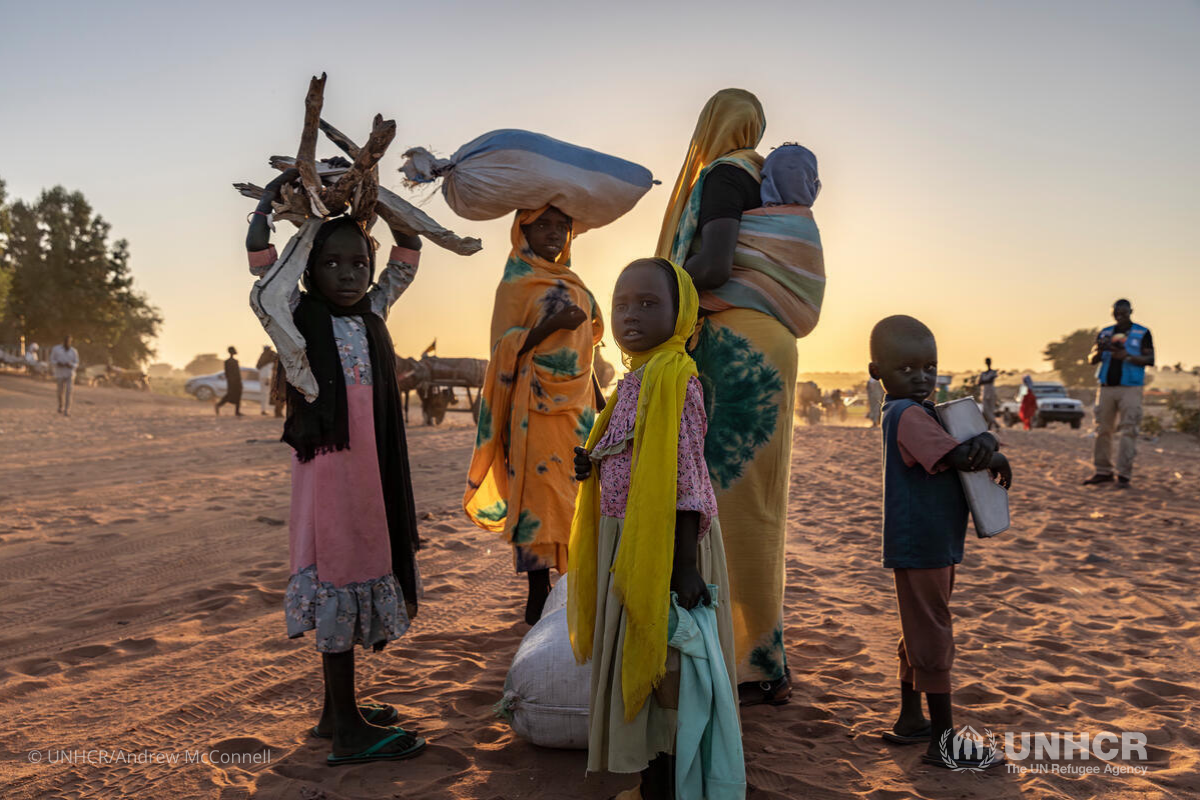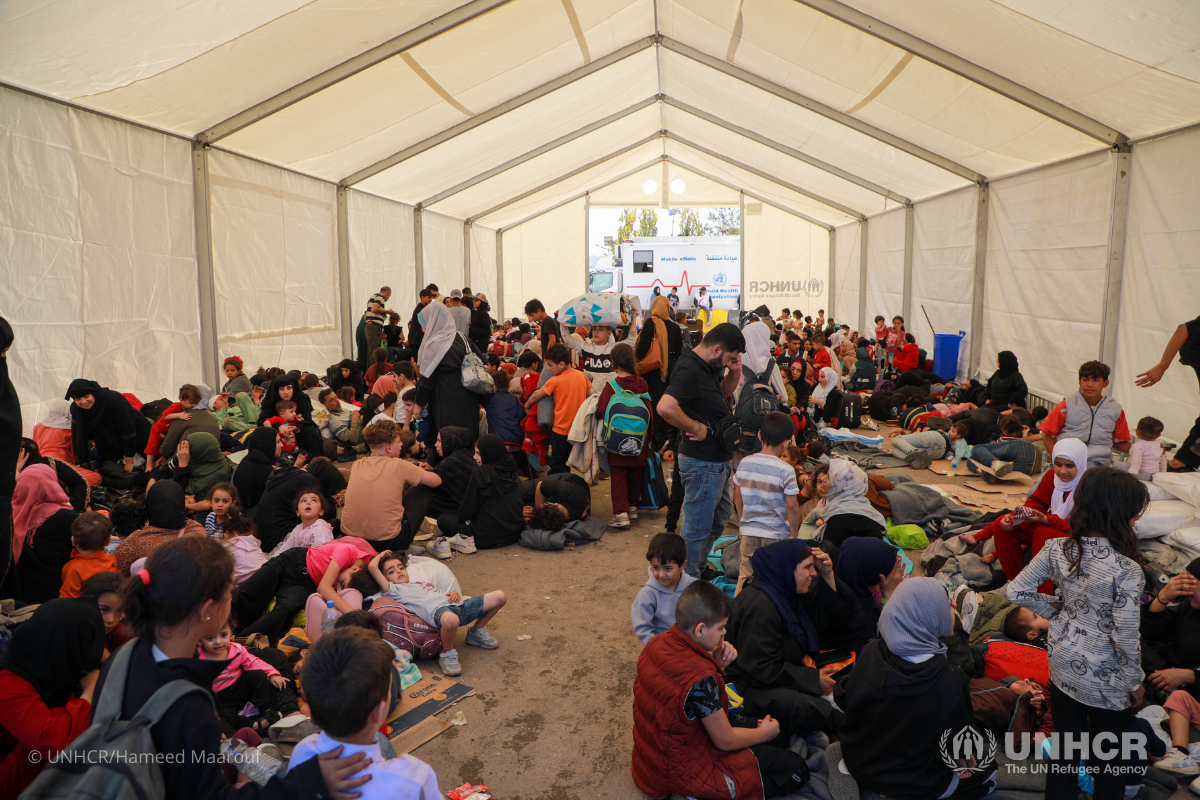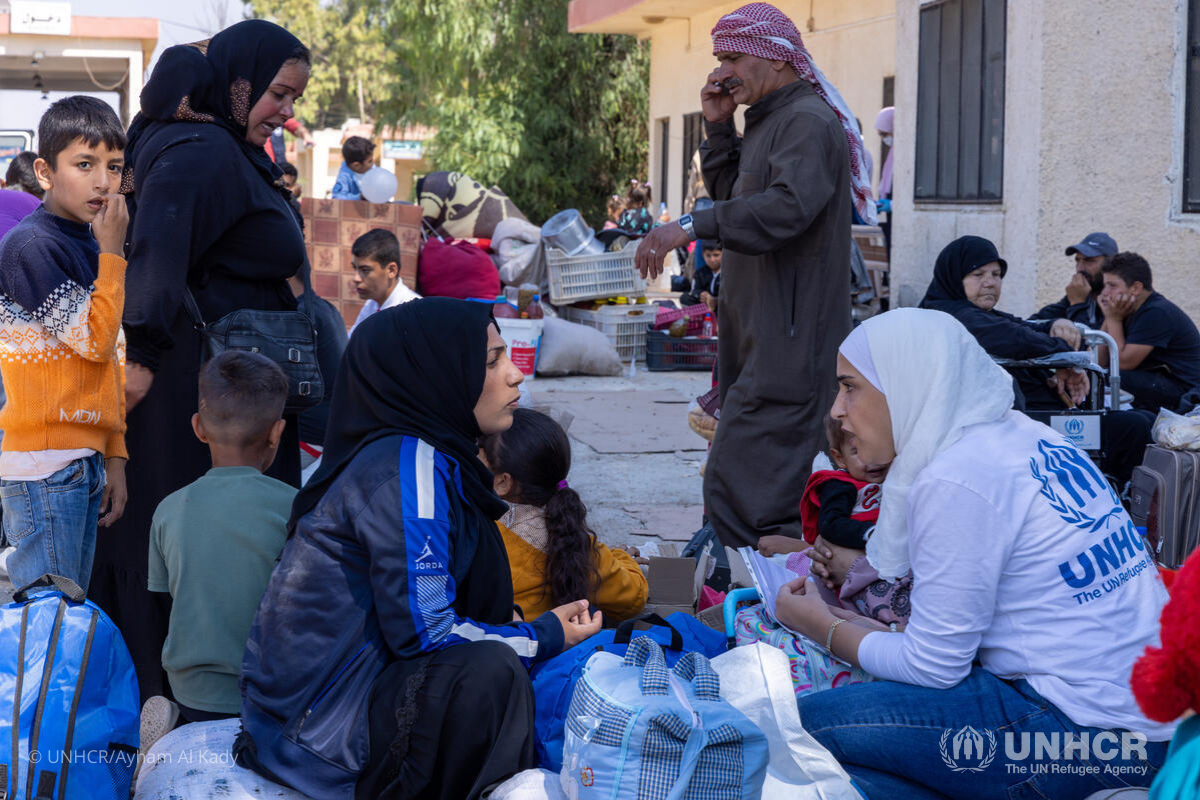UNHCR steps up to support displaced from Lebanon crossing into Syria
This is a summary of what was said by Gonzalo Vargas Llosa, UNHCR Representative in Syria – to whom quoted text may be attributed – at today's press briefing at the Palais des Nations in Geneva. He was speaking from the Syria-Lebanon border.
In the last 72 hours, well over 30,000 people are estimated to have crossed into Syria from Lebanon, fleeing the violence.
The Syrian authorities are keeping the border open to allow Lebanese and Syrians to enter Syria. The response to this crisis is being led by the Government and people of Syria. At the operational level, it is coordinated by the Syrian Arab Red Crescent. Internationally, it is being led by UNHCR, the UN Refugee Agency, in close coordination with other UN agencies, NGOs and with the support of the UN Resident Coordinator and Humanitarian Coordinator.
UNHCR, with the Red Crescent and the Ministry of Health, has been at the four main Syrian border crossing points. Among arrivals, some 80 percent are Syrians and 20 percent Lebanese. Most are women and children, although some males have crossed. About half are children and adolescents. They are exhausted, scared and in need, arriving in a country that has been suffering from its own crisis and violence for more than 13 years, as well as from economic collapse. A few arrivals have been injured as a direct result of the bombings in Lebanon.
Yesterday, we saw a woman crossing carrying two dead children that she intended to bury in Syria.
The most immediate needs are for water, access to medical services, food and blankets. For the time being, these needs are largely being addressed thanks to relief supplies that we and other partners had in stock, but these will need to be replenished soon. UNHCR is also supporting the authorities in transporting the most vulnerable families from the borders to their destinations.
People will need assistance when they arrive at their destinations (Damascus, Homs, Tartus, Raqqa, and so on). For the Syrian arrivals, UNHCR and its partners already have in place substantial structures that are used to support returning Syrians amongst other groups in need. These include 114 community centers all over Syria, providing a wide ranging of services: psychosocial support, child and gender-based protection, specific programs for the elderly and people with disabilities, shelter repair and so on. Information on these services is being provided to Syrians and Lebanese as they arrive.
These structures are now being expanded so that they can also support and assist Lebanese refugees. Most Lebanese are staying with family or friends or can take care of their own accommodation. The Government is establishing a number of collective centers around the country for those Lebanese who do not have a place to stay.
People fleeing the bombing arrive in Syria exhausted, traumatized and in desperate need of help. Support must be provided.
Originally reposted from UNHCR, the UN Refugee Agency


